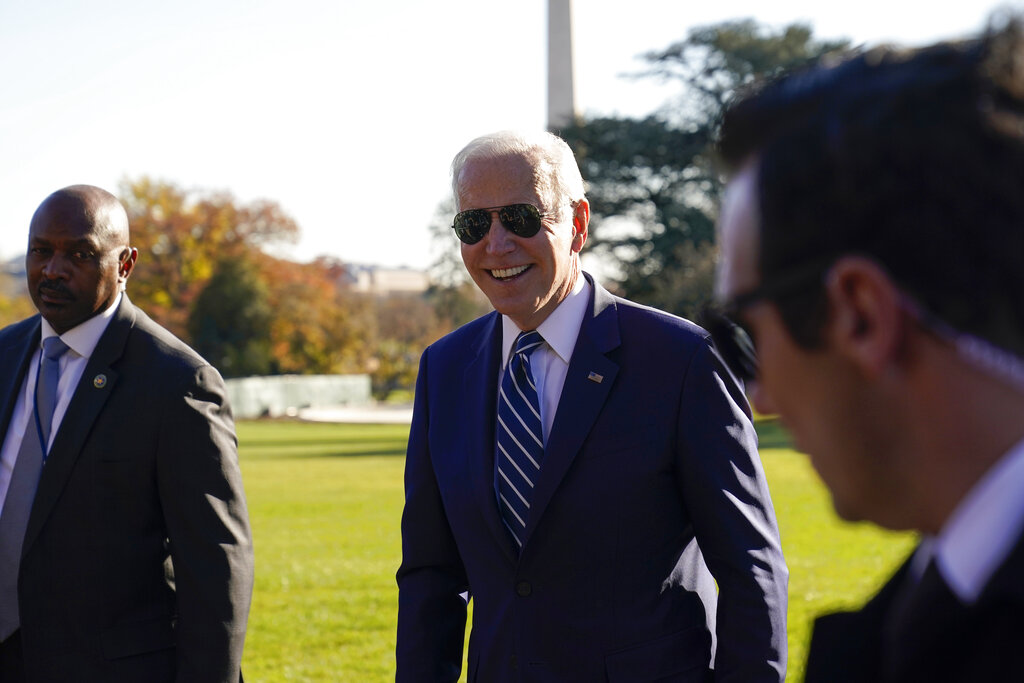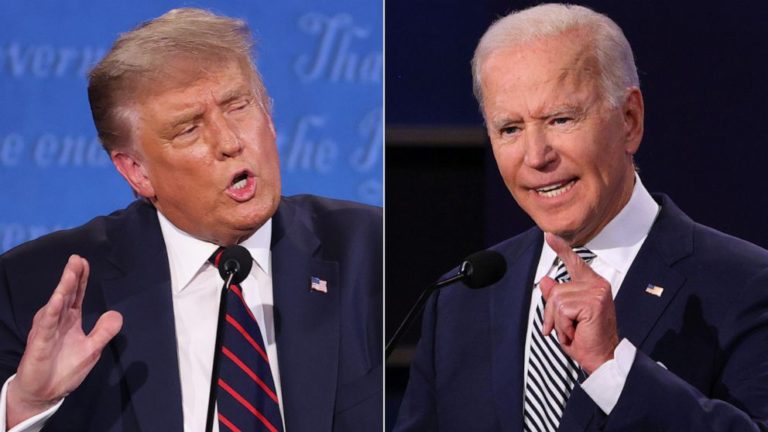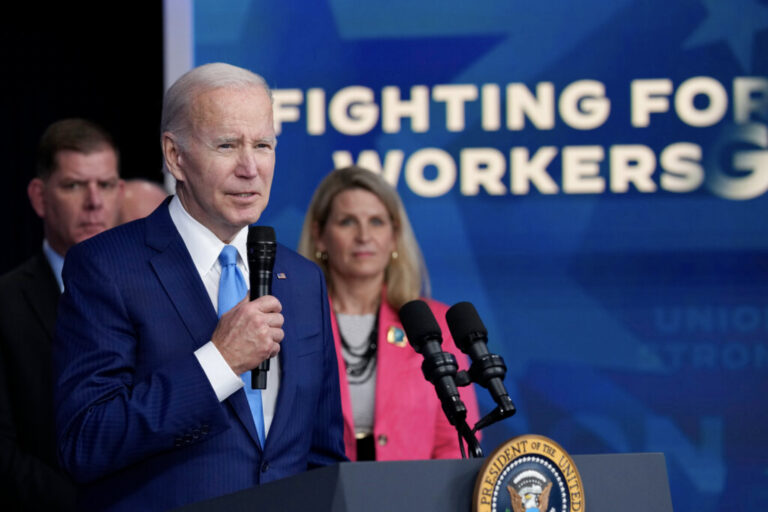
One has to only glimpse at the headlines today to understand how the Biden administration is being viewed by the media and public alike. With approval ratings that have been sliding since the messy pullout of Afghanistan, criticism from both the left and the right, and a new war in Europe, many articles are painting a White House mired in chaos.
However, the biggest thing that underscores all of these ailments to the Biden administration is that they are merely perceptions of what he is doing. Yes, inflation is reaching peak levels, but the media often fails to mention that inflation is being offset by record wage growth. Additionally, Biden has added hundreds of thousands of jobs per month, bringing unemployment to the lowest level since the pandemic. In other words, there seems to be a large gap between the public’s perceptions of Biden’s achievements and his actual achievements.
The work the Biden administration has been doing is often historic. For instance, passing a massive infrastructure bill, confirming liberal judges at record pace, appointing key antitrust regulators to the bureaucracy, and overseeing the largest vaccination project in American history are all impressive feats to be proud of. However, Biden and the Democrats alike aren’t able to get this message to voters. In a recent NPR/PBS/Marist Poll, 56% of voters said that Biden’s first year in office has been a failure.
The reason so many people feel like Biden’s term thus far has been a failure is likely because it doesn’t match up with what he said on the campaign trail. During the campaign, he announced once-in-a-generation changes to social programs, environmental regulation and more. While he has achieved moderate victories, by comparison they seem relatively minor and unsuccessful. Thus, voters perceive him as somebody who didn’t follow through on his promises.
Perception is reality in politics, and the simple fact is that Biden needs to change the narrative surrounding his administration if he is able to change voters’ perceptions of him. He can’t start discussing his legislative accomplishments if voters view him as an ineffective leader and have written him off. He needs an opportunity to control the media narrative, to change voter’s perceptions of him.
Fortunately, the past month has opened up chances for Biden to do just that.
The first major opportunity for Biden is a rare Supreme Court vacancy and his historic nomination of Kentaji Brown Jackson to be the first Black Woman on the Court. This is easily the biggest opportunity for Biden to take advantage of. A smooth confirmation trial, likely ending in her confirmation by the Democratic-controlled Senate, would be a great thing for the Biden administration to tout to voters, especially as voters want to see Jackson confirmed to the Court by a wide margin. Whereas large social spending packages proved divisive for centrist senators, judicial nominations have not been, and Democrats have been in lock step with the administration. This all means that her confirmation is likely to go smoothly barring some unforeseen controversy.
Another important thing about Jackson’s nomination to the Court is that it would help Biden shore up his liberal base of support, which has been slowly declining due to perceived inaction on climate change (and other) policies.
While a Supreme Court nomination may be helpful for Biden to cultivate support in liberal circles, another major aspect of his slumping approval ratings is due to a drop off in independent support, as independents view him as an ineffective leader and, most of all, weak.
Thus, the second – more politically volatile – opportunity for Biden to change his narrative lies in the ongoing conflict between Ukraine and Russia. While there are obvious pitfalls for him politically in this conflict – failed military operations have ruined a fair share of presidential reputations – there is also a great upside here.
By standing up to Putin and not caving to his demands, Biden was already able to appear as a strong leader fighting for democratic rule and sovereignty from authoritarianism, an image that is likely to help him politically. Moreover, in the event that Ukraine is able to maintain its sovereignty through American aid, Biden will be able to disavow perceptions of him as a ‘weak’ leader.
And Biden is just the kind of person to meet this moment.
This past year, Biden has had to deal with intraparty squabbles and bare majorities in both chambers of Congress. His agenda was largely at the mercy of centrist senators and representatives who wanted to whittle down his social spending packages. In other words, Biden wasn’t able to control his own fate.
Now, in dealing with foreign conflicts, Biden is in his wheelhouse. As the former chair of the Senate Foreign Relations Committee – who has also had years of foreign policy experience as Obama’s No. 2 – Biden is one of the most qualified people in the country to tackle an increasingly complex international crisis.
What’s more, he can take some comfort in knowing that he isn’t alone in his ‘first year slump’. Former President Bill Clinton famously had a rough start in his first year in office, when intraparty fighting doomed his healthcare reform plan.
Like Clinton, who was nicknamed ‘the comeback kid’ after repeatedly overcoming early setbacks in both his campaign and administration, Biden has repeatedly shown his determination throughout his political career. From overcoming the tragic loss of his wife and daughter in a car crash, to winning the presidency on the third time around, Biden has not ever appeared to be someone willing to give up after a rough start.
In the end, time will tell if this century’s ‘comeback kid’ will be able to meet this moment and turn his presidency around. If anyone is able to do it, it’s him.



